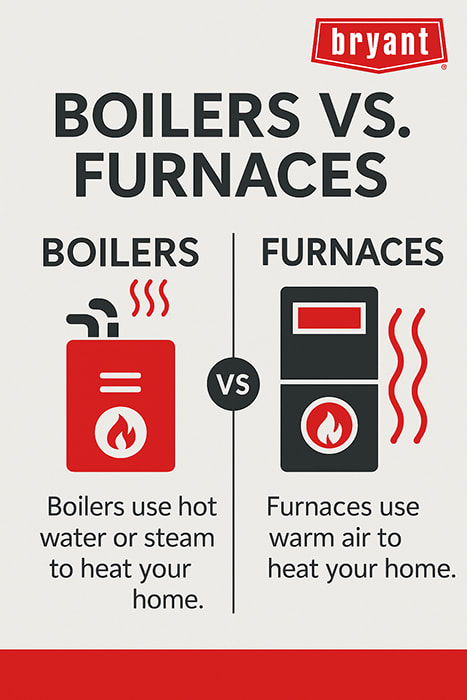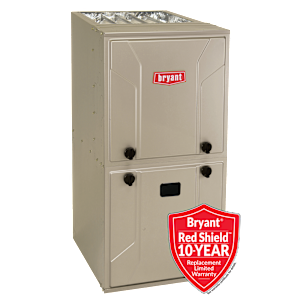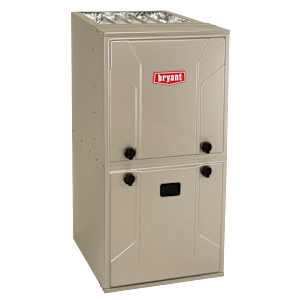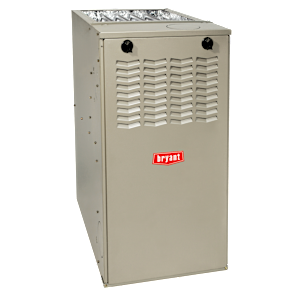Furnace vs Boiler: Making the Right Choice for Your Home Comfort
The primary difference between a furnace and a boiler lies in how they distribute heat. A furnace heats air and blows it through ductwork to vents, while a boiler heats water to create steam or hot water, which circulates through pipes to radiators or radiant floor systems.
Understanding the Difference: Air vs. Water
What is a Furnace?
- Best for: Homes with existing ductwork and homeowners seeking rapid temperature changes.
- Learn more: What is a furnace?

What is a Boiler?
A boiler uses hydronic (water-based) heat. It pumps hot water or steam through a piping system to baseboard heaters, cast-iron radiators, or radiant floor loops. Because they do not use fans, boilers provide a different quality of heat—often described as "heavy" or "cozy"—without moving dust or allergens.
- Best for: Older homes with radiators or new builds incorporating luxurious radiant floor heating.
- Learn more: What is a boiler?
Comparison: Boiler vs Furnace
When optimizing your home for long-term comfort and value, consider how these systems stack up against each other.
| Feature | Furnace (Forced Air) | Boiler (Hydronic) |
| Heat Medium | Air | Water or steam |
| Distribution | Vents & Ducts | Radiators, Baseboards, Radiant Floors |
| Response Time | Fast (heats rooms quickly) | Slower (steady, consistent heat) |
| Air Quality | Filters air (can spread dust if dirty) | Does not move air (less dust circulation) |
| Noise Level | Audible fan noise | quiet operation |
| Cooling | Compatible with central AC | Requires separate AC |
Energy Efficiency and Cost
Which is more efficient?
Maintenance Essentials
Furnace Maintenance
- Filter Changes: Swap out filters every 1–3 months to maintain airflow and air quality.
- Duct Inspection: Check for leaks that compromise efficiency.
- Learn more: Furnace maintenance
Boiler Maintenance
- Pressure Checks: Ensure the system pressure stays within the recommended range.
- Bleeding Radiators: Release trapped air pockets that prevent radiators from heating fully.
- Water Levels: Monitor water levels to prevent system damage.
Connect With A Bryant Dealer On Furnace vs Boiler
Explore Bryant Furnaces
Choose a Bryant furnace for reliable, efficient heating that keeps your home comfortable throughout the winter. Known for their durability and advanced technology, Bryant furnaces offer quiet operation, precise temperature control, and energy-saving features like variable-speed motors and 2-stage heating. With a range of models to suit different home sizes and needs, Bryant furnaces are built to last and come with industry-leading warranties, providing peace of mind and long-term value for your home heating system.
Furnace vs Boiler FAQs
- Learn how much is a new furnace
- Discover what is a heat pump vs furnace
- Explore what is a furnace
- Find out how long does a furnace last
- Explore types of furnaces
- Understand gas vs electric furnaces





